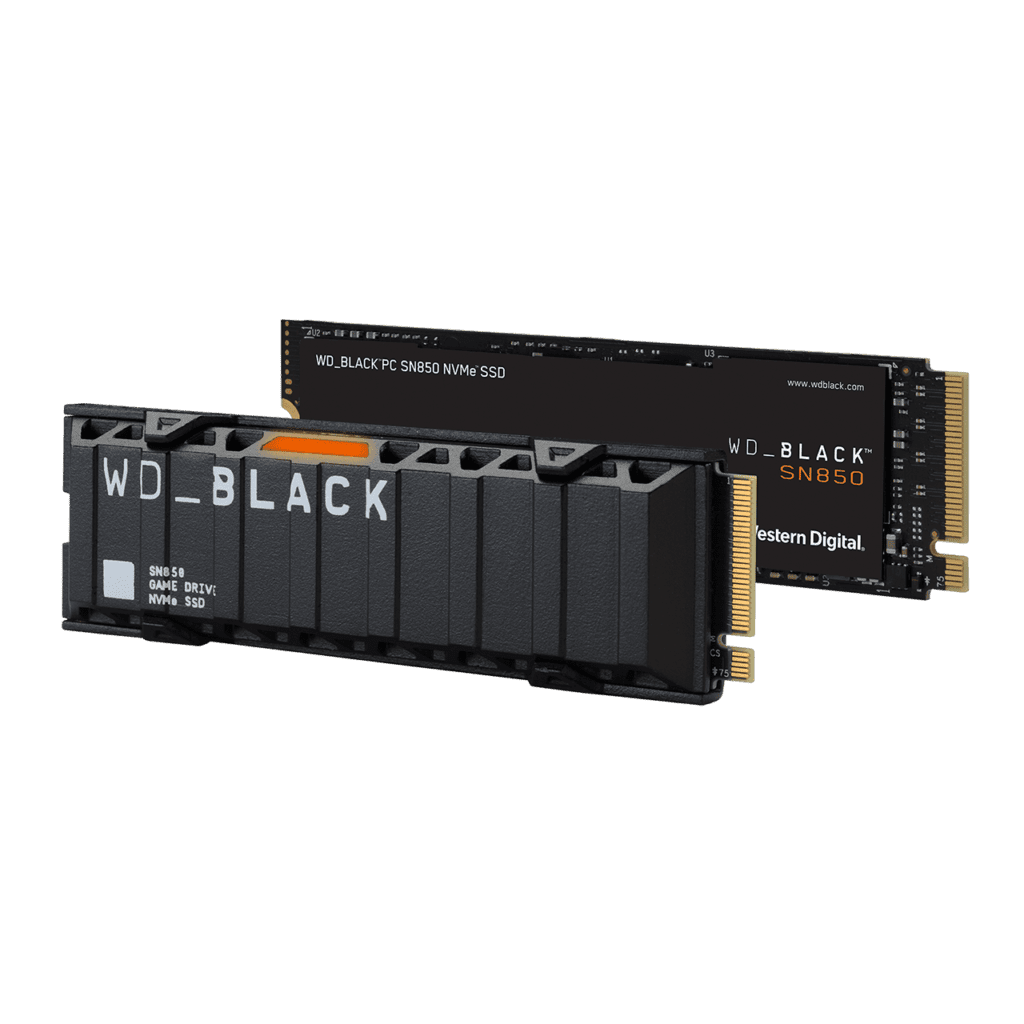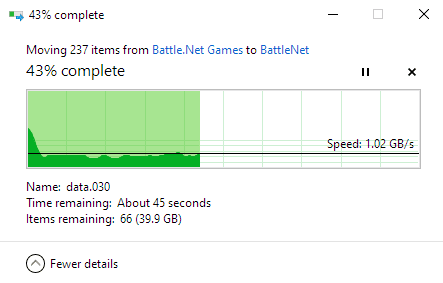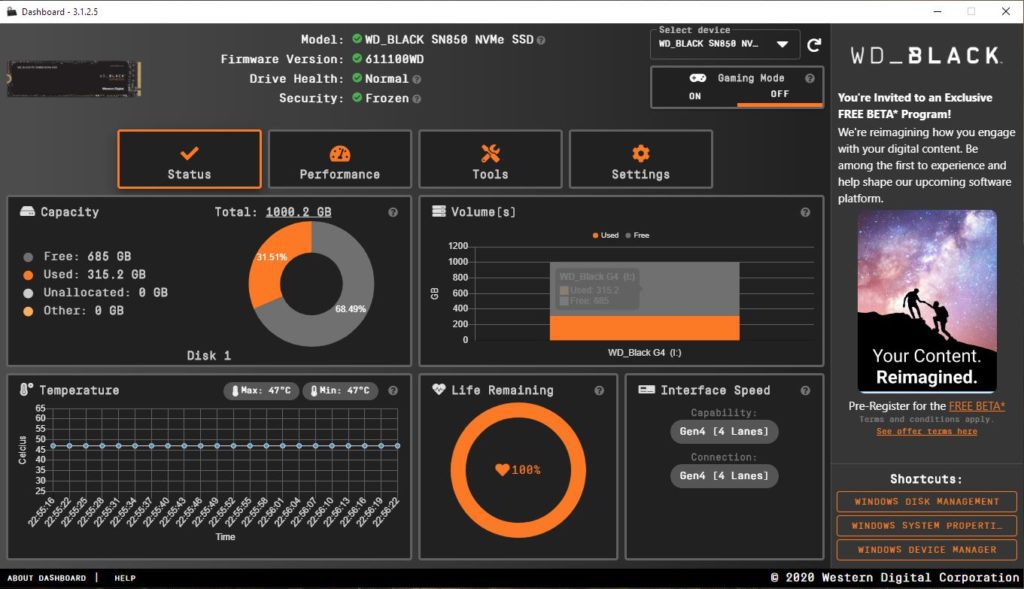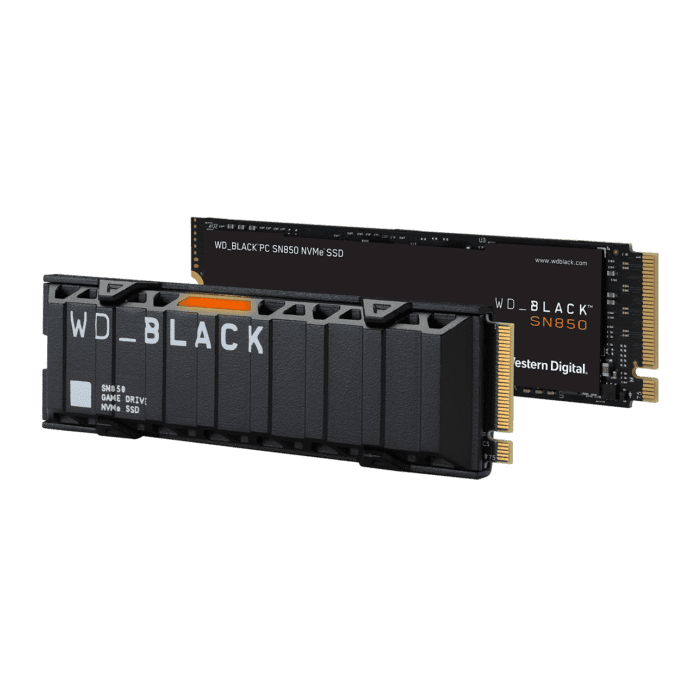PCIe 4.0 SSDs are the new standard of high-speed storage on PCs and gaming consoles, but is the asking price too high for the value they provide? Western Digital sent us their new WD Black SN850 SSD to help us find the answer to that question. The drive, which starts at Rs. 14,490 for 500 GB of high-speed storage, is relatively costlier than PCIe 3.0 counterparts. To that end, I compared the WD Black SN850 with my Crucial P1 500GB NVMe SSD to measure the time differentials among them.
Getting started, the WD SN850 boasts sequential read and write speeds of 7000 MB/s and 4100 MB/s respectively. Other specifications include “up to 1,000,000 IOPS” for longevity, but that won’t mean much for the average user. And that’s what I tested this SSD for – the average gamer.

It’s no surprise to any one that moving from an old spinning hard disk to an SSD (SATA or NVMe) is a huge bump in performance. The system feels snappier and game load times are much better. With PCIe 4.0 introduction in mainstream PCs thanks to AMD’s Ryzen CPU lineup, the bandwidth available for data transfer increased significantly. Only select motherboards support the spec and PCIe 4.0 SSDs are still expensive. The Crucial P1 SSD (PCIe Gen 3) I bought in 2019 cost me around Rs. 5000 for the 500 GB option. The same amount of storage on the WD Black SN850 costs 3 times as much right now. But does it perform 3 times better?
Let’s get the synthetic benchmarks out of the way first. I used CrystalDiskMark to test the ‘real world’ performance with a 4 GB file on various drives. Here’s what I got:
| CrystalDiskMark Parameters | Kingston A400 (SATA SSD) | Seagate Barracuda ST1000DM010 (HDD) | Crucial P1 NVMe PCIe Gen 3 | WD Black SN 850 |
| SEQ1M Q1T1 (Read) | 515 MB/s | 168 MB/s | 1702 MB/s | 4102 MB/s |
| SEQ1M Q1T1 (Write) | 129 MB/s | 159 MB/s | 968 MB/s | 2979 MB/s |
| RND4K Q1T1 (Read) | 27 MB/s | 0.40 MB/s | 66 MB/s | 86 MB/s |
| RND4K Q1T1 (Write) | 57 MB/s | 0.72 MB/s | 199 MB/s | 259 MB/s |
| RDN4K (IOPS) (Read) | 6603 MB/s | 97 MB/s | 16184 MB/s | 21064 MB/s |
| RDN4K (IOPS) (Write) | 71 MB/s | 174 MB/s | 48659 MB/s | 63316 MB/s |
In terms of sheer theoretical speed, the WD Black SN850 breezes past other contemporary drives easily. These are impressive numbers and almost reach the numbers that are advertised. However, they’re also synthetic benchmarks which never tell the entire story.
To test out the drive’s effective speeds during actual gameplay, we need to see how it performs in, well, actual games. I tested both loading into menus and gameplay/benchmarks.
| Crucial P1 (Gen 3) | WD Black SN850 (Gen 4) | |
| Assassin’s Creed Valhalla | 75 s | 69 s |
| Horizon Zero Dawn | 29 s | 14 s |
| The Witcher 3 | 15 s | 14 s |
| Deus Ex: Mankind Divided | 45 s | 40 s |
| Call of Duty Black Ops: Cold War | 48 s | 43 s |
Copying files was a breeze as the SN850 handily beat every other SSD I have ever used. If your daily work includes a lot of file transfer and drive management, then it starts to make a lot more sense to get this SSD. Aside from writing for TechQuila, I also work as a video/film editor, and as such have to deal with extremely large amounts of files. Transferring footage to the WD SSD for editing, and then back to other drives for offline backups was really fast, so that’s one area where I think the drive makes a lot of sense to invest in.

| Crucial P1 (Gen 3) | WD Black SN850 (Gen 4) | |
| Assassin’s Creed Valhalla | 12 s | 10 s |
| Horizon Zero Dawn | 35 s | 13 s |
| The Witcher 3 | 19 s | 19 s |
| Deus Ex: Mankind Divided | 3 s | 3 s |
| Call of Duty Black Ops: Cold War | 14 s | 10 s |
Well, it’s fast, but not more than 2x times as much as the price demands. We also get addon software to monitor the drive’s health, enable ‘Game Mode’ and certain other features. It’s certainly a handy tool but not necessary.

When we enabled Game Mode, we didn’t notice any significant change in loading times. Games would load maybe a smidge faster, but not much. I kept asking myself the same question which I started with – Is PCIe 4.0 really worth it right now? It shouldn’t come as a surprise that from purely sequential read/write speeds, and certain other features, the WD SN850 is certainly among the very best SSDs on the market.
If you’re thinking of building a new gaming PC just for that – gaming, then there’s really no point in getting this drive today. PCIe 4.0 drives are still relatively new and as a result – expensive. Last gen PCIe 3.0 drive prices have only started to come down enough so switching to them from a hard-disk is a good value. Paying 3x more for just a little but of performance is not worth it.

However, the new consoles – PS5 and Xbox Series X|S, now ship with PCIe 4.0 SSDs, and that is going to become a standard in game development. In the near future, there will be games that simply can’t run on older hard disks or even older SSDs. We’re starting to see it now, with games like Cyberpunk 2077 offering a “slow hard drive mode”. Microsoft is hard at work in figuring out the intricacies of DirectStorage, to offer PC gamers the same benefits that consoles’ custom storage architecture allows.
Until the time comes when next-gen games will absolutely require PCIe 4.0 drives, it’s more cost-effective for PC gamers to stay with their gen 3 SSDs. Not only are the speed improvements on gen 4 drives minimal, they’re also a much more expensive purchase. As more next-gen consoles are manufactured, the cost of PCIe 4.0 drives like the WD SN850 will decrease. If you’re investing in a gaming PC which will last for years to come, then going for the WD Black SN850 makes good sense. It’s fast, it’s future-proof and will only provide more value with time.
The WD Black SN850 is probably the fastest consumer PCIe 4.0 SSD, and as such makes file transfers and fetch a breeze. It offers probably the shortest loading times I’ve ever seen in games, but not extremely lesser than those that contemporary gen 3.0 drives offer. While its performance is great, its price can only make me recommend you to wait a few months or more until games on PC absolutely require gen 4.0 SSDs to play on.


